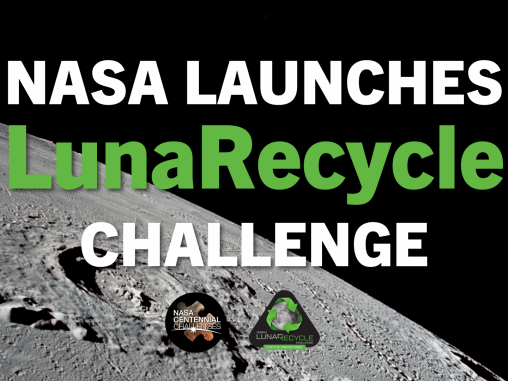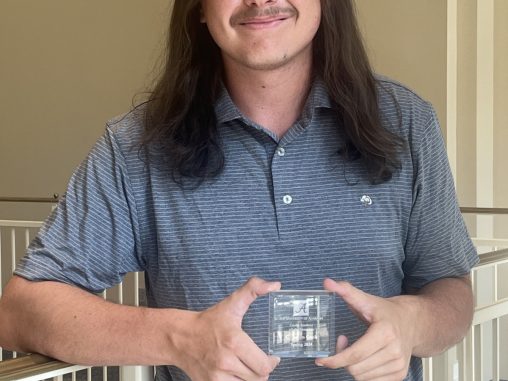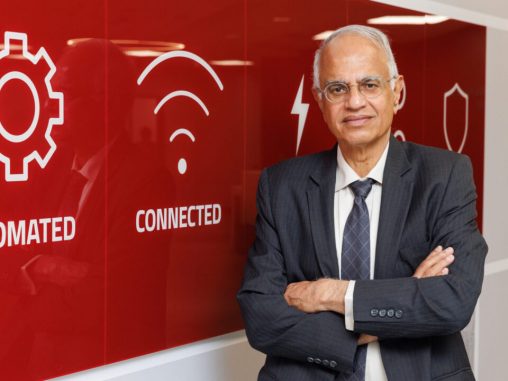Our research programs for graduate and undergraduate students provide an unmatched experience having access to state-of-the-art computational facilities and experimental capabilities.

NASA announced the launch of the LunaRecycle Challenge on Monday, Sept. 30, offering $3 million in prizes for innovations in recycling material waste on deep space missions with The University...

Cameron Cook, a sophomore majoring in mechanical engineering, was selected as the spring 2024 Outstanding Co-op Student by the Engineering Career Development Center. Cook completed his first semester of co-op...

With a grant from the Federal Transit Administration and the United States Department of Transportation, The University of Alabama is gearing up for a $3 million project to develop advanced driver assistance systems for large transit buses.

UA’s Department of Mechanical Engineering Faculty is grouped into three interconnected but distinct disciplinary groups; Dynamic Systems & Control (DSC), Materials Processing & Manufacturing (MPM), and ThermoFluids Science (TFS). Each of these Departmental Disciplinary Group (DDG) is further broken into horizontally interconnected “Research Thrust Areas (RTAs)”. Our diverse faculty conduct research in all of these areas while concentrating in a more specific discipline or area as follows:
The Department of Mechanical Engineering also directs four specialized research units:

Advanced and Intelligent Manufacturing Systems (AIMS) Laboratory – Dr. Nader Jalili
In this research laboratory, four main areas of research and education are pursued. 1) Dynamic Systems, Control, and Automation 2) Robotics and Artificial Intelligence for Manufacturing Systems 3) Future Manufacturing with Human Robot Teams and finally 4) Mechatronic and Manufacturing Systems Education.
Advanced Hierarchical Materials by Design (AdHiMaD) Laboratory – Dr. Kasra Momeni
The main area of research in the AdHiMaD lab expertise is developing theoretical/numerical tools to understand the multiscale/physics response of materials and designing experimental procedures to make superior materials. Various modeling techniques, including atomistic simulations, mesoscale phase-field approach, and macroscale continuum methods, along with experimental techniques such as in situ TEM and scanning probe microscopy, are utilized to achieve this goal.
The Control of Human and Robotic Systems (CHARS) Laboratory is rooted in both theory and application. From a theoretical perspective, Lyapunov- and passivity-based approaches are utilized to design and validate stabilizing adaptive controllers for nonlinear, switched, hybrid, and uncertain dynamical systems. Correspondingly, the laboratory applies the controllers to various applications including functional electrical stimulation, rehabilitation, robotics, exoskeletons, human-robot interaction, additive friction stir deposition, and many others.
Biomechanics Laboratory – This laboratory contains work space for design and construction of devices to aid in health maintenance. Computer facilities in the lab are equipped with software for both lumped-mass and finite element modeling of the human body.
Combustion and Reactive Flow Laboratory – This teaching and research laboratory contains a holographic interferometer, a high-speed imaging system, a laser-induced fluorescence system, and a particle image velocimetry system. The laboratory supports research on topics such as microgravity combustion, reactive turbulent flows, propulsion, and internal combustion engine applications.
Design Clinic Laboratory – This laboratory consists of a design library, conference space, audio/visual equipment, telephone centers, and a presentation area for Design Clinic Industrial Project activities.
Instrumentation Laboratories – These labs provide a variety of experimental equipment and instruments to support the teaching of basic instrumentation for mechanical systems and thermal fluid systems.
Machining Research Laboratory – This laboratory contains basic machine tools such as milling machines, lathes, drill presses, and a 10-hp CNC turning center. The laboratory supports research on machining areas (e.g. machining of advanced materials for process development, modeling, and optimization). The laboratory also supports teaching of introduction to manufacturing processes.
Metrology Laboratory – This laboratory contains metrology instruments, including a Leitz measuring microscope, a Brown & Sharpe Coordinate Measuring Machine, and other gages. The laboratory supports research on metrology-related issues in manufacturing such as precision and surface finish. The laboratory also supports teaching needs on fundamental metrology in manufacturing.
Numerical Modeling Laboratory – This laboratory features high-performance workstations with expanded storage and various I/O devices for efficient modeling of fluids and transport phenomena.
Robotics and Automation Laboratory – This laboratory supports instrumentation and research in the areas of robotics, imaging systems, computer-mechanical interfacing, control systems, and computer-integrated manufacturing.
Structural Acoustics Laboratory – Dr. Steve Shepard
Focus areas: to develop new technologies in the areas of structural vibrations and acoustics. By gaining a fundamental understanding of the generation, transmission and radiation mechanisms associated with sound and vibration, the needs of industry, government and engineering education can be met.

Speaker Invitation for FALL 2024 ME Seminar Series
Time: 2 – 3 PM
| Dates | Speaker | Location | Seminar Title | Comments |
|---|---|---|---|---|
| Wednesday, August 21, 2024 | Krishnan, Kasemer, Srinivasan | BE 0009 | ME Graduate Students Welcome 2024-2025 | Introduction, ME Dept Head, GPD, Graduate Program |
| Wednesday, August 28, 2024 | Richard Adkins | BE 0009 | Using UA’s HPC Resources: A Brief Introduction to UAHPC/CHPC | UA High Performance Computing Solutions Architect |
| Wednesday, September 4, 2024 | Gabe Mansfield | NL 1013 | Navigating Engineering Research: Essential Library Strategies for Graduate Students | Assistant Professor at Rogers Library |
| Wednesday, September 11, 2024 | Tom Ackerson | NL 1015 | Materials Challenges for Reusable Hardware and Sustainable Processes for Space Travel in the Mid-21st Century | Technical Fellow, Blue Origin |
| Friday, September 13, 2024 | Dr. George Nelson | NL 1013 | Multimodal X-ray and Neutron Imaging of Lithium Batteries | UAH Mechanical & Aerospace Engineering Department Chair |
| Thursday, September 26 | John Crane | NL 1013 | Department of Energy Zero Carbon Energy : Progress to Net Zero | DOE NETL Gas turbine technology manager |
| Wednesday, October 2, 2024 | Dr. Judy Schneider | NL 1013 | Advanced Manufacturing to Support Extraterrestrial Development and Habitation | Professor of Mechanical Engineering, Co-Director of Material Science Program, UAH |
| Wednesday, October 9, 2024 | Dr. Sibendu Som | NL 1013 | Accelerating Decarbonization of Transportation and Power Generation Sectors: Leveraging Leadership Computing & High-Fidelity Experiments | Director Advanced Propulsion and Power Department / Director, AI Applications Initiative at Argonne National Laboratory |
| Wednesday, October 16, 2024 | Dr. Kevin Cole | NL 1013 | Something old and something new: Green’s functions and thermal modeling | Emeritus Professor, Mechanical and Materials Engineering, University of Nebraska-Lincoln |
| Wednesday, October 23, 2024 | Dr. Michael Tonks | NL 1013 | Multiscale Modeling of Ablative Thermal Protection Systems | UF, Materials Science and Engineering, Assoc. Dept. Chair |
| Wednesday, October 30, 2024 | Dr. Brian Lattimer | NL 1013 | Material Design and Evaluation for Extreme Environments | Department Head and Nicholas and Rebecca Des Champs Chair Professor in Mechanical Engineering, Virginia Tech. |
| Wednesday, November 6, 2024 | Dr. Arvind Thiruvengadam | NL 1013 | Diesel Engines - Past, Present, and Future Directions | Principal Engineer, PACCAR Technical Center |
| Wednesday, November 13, 2024 | Dr. Gregory S. Chirikjian | NL 1013 | From State Estimation on Lie Groups to Robot Imagination | Willis F. Harrington Professor, Department Chair, University of Delaware |
| Wednesday, November 20, 2024 | Dr. Pierre Larochelle | NL 1013 | Synthesis of Spherical and Spatial Mechanisms for Pick and Place Tasks with Guiding Locations | Department Head and Professor, South Dakota School of Mines & Technology |